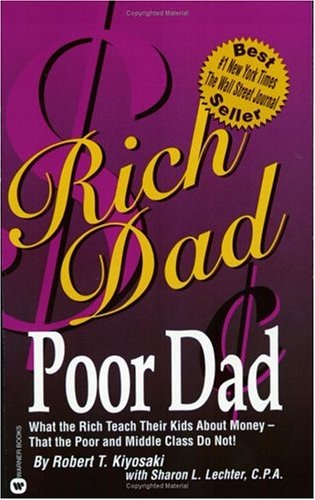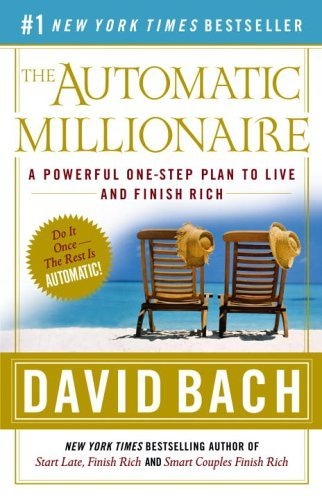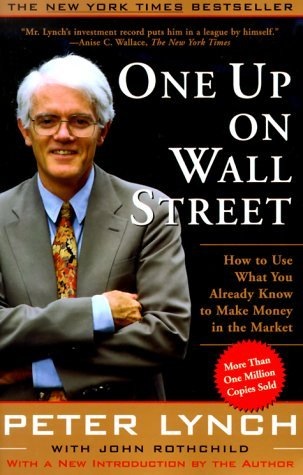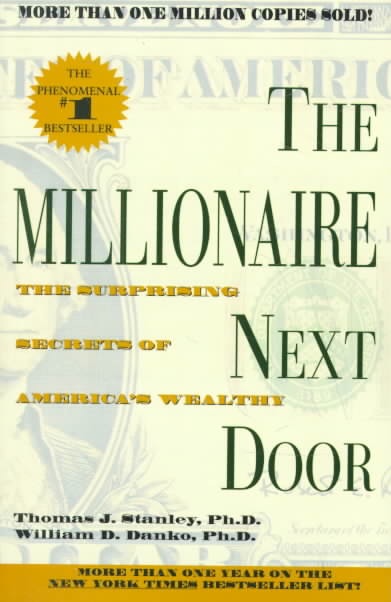 One of the great things about Amazon.com is that since they have a reseller program, the most popular books often are sold (used) for very cheap.
One of the great things about Amazon.com is that since they have a reseller program, the most popular books often are sold (used) for very cheap.
In the case of this article, I picked out five of the best personal finance books out there that you can get for less than a buck.
I wouldn’t say that these are necessarily the five best financial books written, but they are all very popular and have proved themselves to be worth something – even if it is only a buck! 😉
Just a quick disclaimer, at the time of this writing you could buy any of these books used on Amazon for under a buck.
Yes, in order to get them that cheap you will be buying used books and their prices do fluctuate, so one day you could get it for 75 cents and the next day it might be 83 cents. But either way, I can assure you it will be worth the money. And, as always, using the library to get books is a great idea as well!
The 5 best financial books for under a buck!
Poor Richard’s Almanac
Poor Richard’s Almanac is the famous Benjamin Franklin classic. Since it was written hundreds of years ago, I assumed that most of the proverbs contained in it would no longer be relevant. I don’t think I could have been more wrong. The beauty of this book is that Ben Franklin distilled financial wit and wisdom into timeless proverbs that will continue to have value centuries from now. While techniques and methods change, principles remain the same. This book focuses on the principles, which is why it has stood the test of time.
Rich Dad, Poor Dad
This was one of the first financial books I read and it set me off on the journey to getting control of my money. The book has been very controversial in the personal finance community because Kiyosaki (the author) more or less disagrees with all of the traditional views of “wise money management”. He has a very do-or-die mindset when it comes to finances.
Personally, I disagree with some key things that Kiyosaki preaches, but at the same time there are some lessons in this book that I think he hits the nail right on the head. I mentioned in a recent book review that this one was one of the most impactful books I’ve ever read. Part of that was because it was the first book of it’s kind that I read and part of it was the message contained in it. As a kid from a working-class family, this book was helpful to me in breaking out of the “I will always be poor” mindset.
Find out more about Rich Dad, Poor Dad.
The Automatic Millionaire
This book was written by David Bach and is incredibly simple to understand. He did an excellent job of distilling the basics of investing for retirement into their simplest form. The book occasionally gets criticized for being overly simplistic, but it was perfect for me when I was starting out – so I still have an affection for it. The purpose of the book is to help the readers overcome the biggest challenge of reaching financial freedom – our lack of discipline. David lays out a good argument and gives simple step-by-step instructions on how to retire with a million dollars in the bank. This was one of the books that made me realize that this stuff really isn’t as difficult as some people make it seem.
Find out more about The Automatic Millionaire.
One up on Wall Street
Just as David Bach simplified retirement investing in the Automatic Millionaire, Peter Lynch simplified stock picking in One up on Wall Street. Peter has become one of my investing heros, along with Warren Buffett. Both have had fantastic results with their funds. In One up on Wall Street Peter lays out a convincing case as to why we – everyday people – have a better chance of beating the market than the “big boys” up on Wall Street. He talks about how some of his successful stock picks came from his wife’s suggestions after a trip to the grocery store.
I loved the book, because it added a much needed element of common sense to the stock-picking process. While he does lightly touch on some slightly more complex topics, the book is very readable, enjoyable, and worthwhile for the beginning stock investor.
The Millionaire Next Door
The bummer about reading a bunch of books on the same topic is that they start to run together in your brain! This book is a case of that for me. The thing I remember (I think) is that the book authors analyzed the habits of a bunch of millionaires to see what the common threads were between them. If I recall correctly, this book pointed out that most millionaires actually do not live in “rockstar” extravagance, but actually watch their finances very closely. The overriding point of the book is that the primary factor in building wealth is to spend less than you earn!
Find out more about The Millionaire Next Door.




